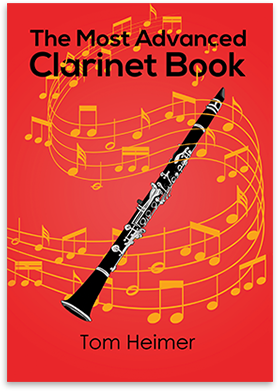
HISTORY IN WRITING OF THE MOST ADVANCED CLARINET BOOK
I was first asked to be a clarinet clinician in the early 1980s for the Northern Manitoba
Band Festivals. In 1982 I was asked to be a soloist at the 3rd Annual Northern Manitoba Jazz
Festival at The Pas, Manitoba. The band and jazz festivals had been going on since 1978 with
students from Thompson, The Pas and Swan River taking part. Later, students from Flin Flon
and Gillam took part. When the clarinet specialist couldn’t come up North, I was asked to do
those clinic sessions as well as woodwind sectionals. I wrote down a few exercises I had developed over the years so I had something written out to refer to and to hand out to the
students.
As time went on with these festivals, more was added to my clinic notes. When I retired from
teaching Band in Thompson in 1996 I had quite a large collection of exercises.
In wondering what to do with all of these in the early 2000s, I decided they could be the
foundation of a book. 50 exercises (short studies) were then used in the first part of the book. They came with explanations of “how and why”.
Then I wrote 27 full page (contemporary) etudes. Some of them include parts of the 50 short
studies. The last one, titled “The Most Advanced Study” makes use of all 50 of them, though
probably not the hardest of the etudes. The etudes each have themes (4ths & 5ths, mixed time signatures, etc.), but are basically the hardest technical stuff for clarinet I could imagine.
Thus, the title.
The “Most Advanced”? I’ve practiced many advanced books over five decades, some to be named in a following Blog. I can honestly say there isn’t a method book that I’ve found harder. I’ve been practicing the book since about 2013 (6 years) and can play it all now, but I
still have to “really think”.
Post Views : 434